
Who will support civil society actors as burnout stalks Ukrainian activists?
28/06/2024
As Russia’s war in Ukraine continues, the resilience of those affected is tested daily. The psychological toll on the Ukrainian population is profound, with widespread reports of trauma, anxiety, and stress-related disorders. Ukrainian civil society organisations have mobilised to provide support to those in need, while often needing support themselves.
Elisabeth Ng Langdal is the Executive Director of Mental Health and Human Rights Info (MHHRI), a member organisation of Human Rights House Oslo. She works with international projects related to information on mental health in war and conflict areas, and says civil society organisations (CSOs) are particularly vulnerable to burnout among their employees.
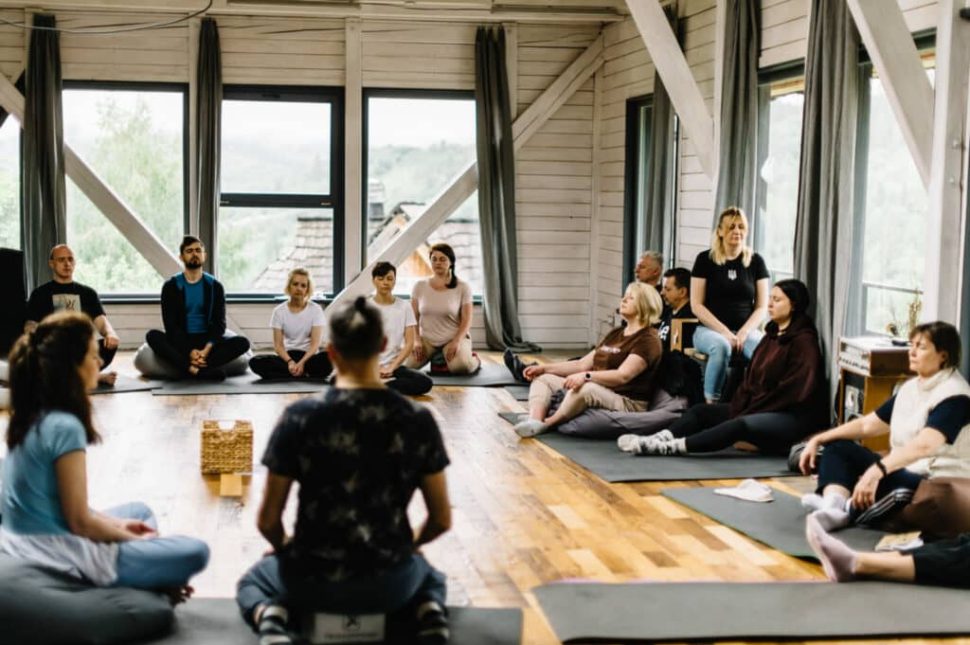
“When team members experience burnout due to excessive workloads and high expectations, it not only affects their individual effectiveness but also jeopardises the overall sustainability and impact of the organisation,” she explained. “In a CSO, the burden of work often shifts to other team members, leading to a ripple effect that hampers the organisation’s ability to serve its beneficiaries. Therefore, the importance of well-being for civil society organisations cannot be overstated.”
She says the unprecedented crises in the region are imposing unique challenges on civil society organisations. “For instance, organisations may need to reallocate resources in response to the conflict or adjust their advocacy efforts to counter antidemocratic trends. Additionally, the exhaustion and fatigue experienced by civil society in Ukraine, coupled with limited resources allocated for well-being, highlight the urgent need for support to address the well-being of individuals affected by these crises.”
Ng Langdal’s colleague, Wika Solonitsyna, Programme Coordinator and co-founder of AHALAR, a member organisation of Educational Human Rights House Chernihiv, works with Ukrainian ‘helpers’ – activists, human rights defenders (HRDs), and volunteers. Solonitsyna says the high demand for well-being support among Ukrainian CSOs shows the direct connection between mental health and human rights.
She says the ongoing war in Ukraine not only poses a physical threat but also has a serious impact on mental well-being and the psychosocial aspect of an individual’s life. “Mental disorders and mental health issues not only negatively affect an individual’s productivity and well-being but also extend beyond – negatively impacting their loved ones, the community, and the life of the society as a whole.”
According to the Sociological Survey of Civil Society Organisations, commissioned by East Europe Foundation in 2023, Ukrainian organisations list emotional burnout as one of the top three internal problems and challenges faced by the organisations, together with the lack of funds and weak physical infrastructure.
Olha Skrypnyk, Chair of the Board at the Crimean Human Rights Group and an internally displaced person, said in a recent interview with Crimean human rights defenders: “We don’t work eight hours a day, we have 24/7 work that has been going on for 10 years. And after 2022, organisations in Ukraine, including ours, faced yet another new challenge. It’s the question of physical survival…”
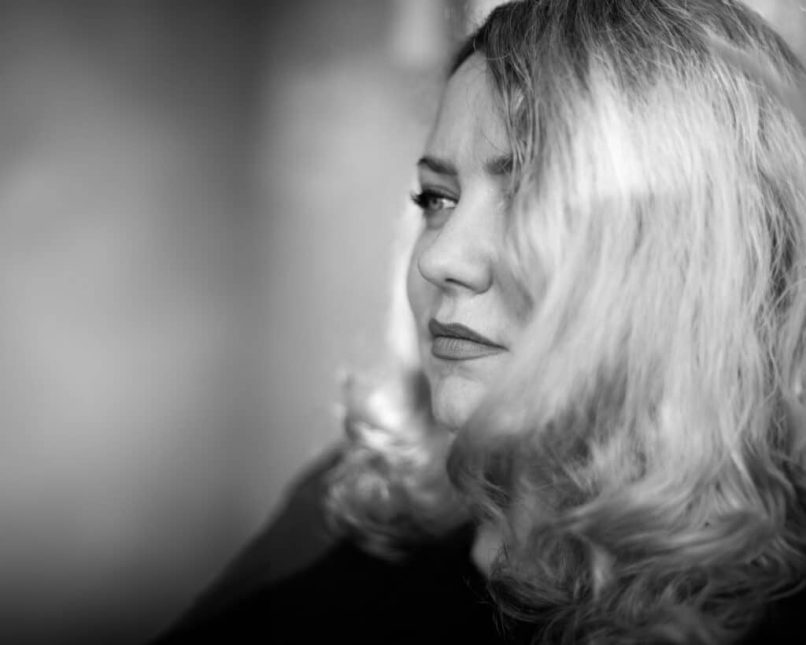
Skrypnyk’s colleague, Liudmyla Yankina, the Leader of the Civil Society Protection Unit at the ZMINA Human Rights Centre also shared insights on the complexity of burnout among Ukrainian civil society and human rights defenders.
“This is what reality looks like for many human rights defenders, including myself. After surviving a night of missile attacks, the workday still begins at 8 am… In my work, aside from the initial fear and a purely emotional response during a missile attack that I might be killed, I immediately start to worry about whether any of the people that I work to protect have been affected by the attack, if there have been any direct hits, and if they are safe.”
“I can’t afford to be sick because requests keep pouring in, leading to a sort of chronic fatigue. Colleagues are getting very ill – burning out intensely because the accumulated stress has nowhere to go. This turns into complex depressive conditions, where you find yourself in a very tough emotional state, yet there’s no straightforward solution for your condition, because, after all, you have responsibilities.”
“I have been offered a one-month retreat programme abroad, but I was told that I wouldn’t be able to work during this time. I realise this is simply unrealistic given the volume of work, rendering the programme inaccessible to me… like a child looking at the candy in a shop window – you want it, you see it but it’s not available to you.”
HRHF has been working alongside several Human Rights Houses (HRHs) for over a decade to protect HRDs at risk in Eastern Europe and the Caucasus through the Network Protection Programme. In addition to that, in 2022-2024 together with the ERIM-led coalition of partners, HRHF has been implementing the Emergency Support Ukraine project (ESU) funded by the European Union. This project aimed to strengthen the resilience and effectiveness of war-affected CSOs and civil society actors in Ukraine, including independent media and human rights defenders.
Over 500 HRDs and their family members were supported during 2023 by the HRHs and HRHF, including within the framework of the ESU project. Besides the emergency support with evacuation, relocation, medications, equipment, and digital and security protection, it was possible to provide psychosocial support and well-being opportunities for individuals and groups of Ukrainian civil society representatives.
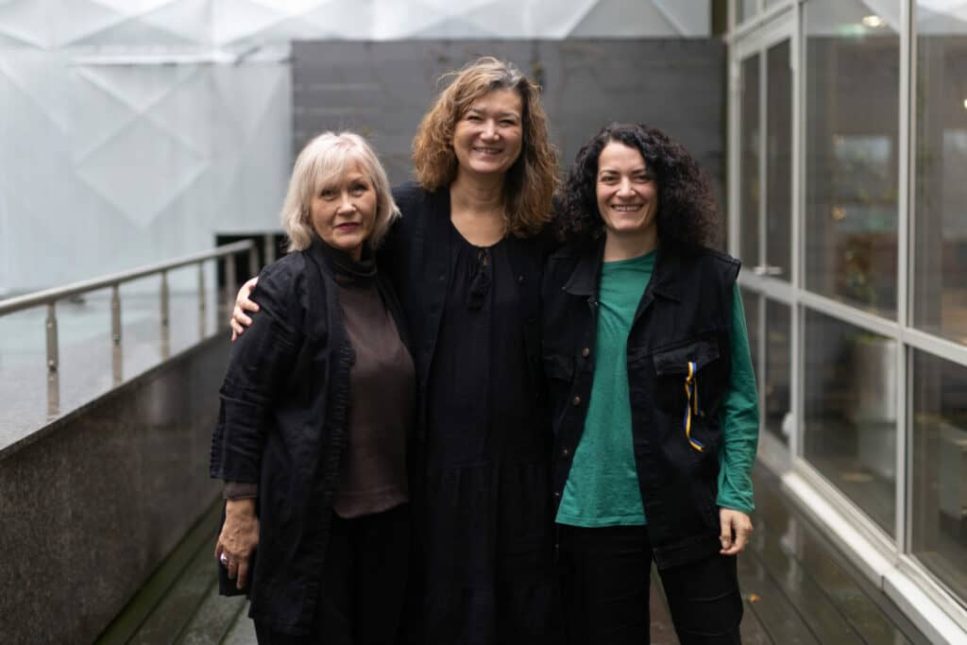
(Human Rights House Tbilisi, Georgia)
Human rights activist and journalist, Iryna Vyrtosu, was one of the beneficiaries of the ESU project within the psychosocial rehabilitation programme implemented by Educational Human Rights House Chernihiv. This programme aimed to increase trauma competence for activists, human rights defenders and journalists who work with the survivors of violence and war. Vyrtosu reflects on the common lack of self-awareness when it comes to self-care and well-being and explains how the programme helped her to recover and continue human rights work, while upgrading her professional skills.
“I’ve learned to monitor my state. For example, now I know for sure that I need to sleep well because anxiety increases at night… I often work with people slightly younger than me. Their eyes are burning, always full of ideas. And I always ask them these simple basic questions: Have you eaten today? Have you slept? Where will you find the time and energy for this idea? I can share my experience and knowledge, my contacts and resources with them, but that’s not all. I want them not to forget about themselves in this drive.”
In 2023, the Kyiv-based team of Human Rights House Crimea received organisational well-being support. Its Director, Andrii Zubariev, said the team retreat was an opportunity for colleagues usually working remotely to reconnect and get to know each other on a deeper level. Zubariev believes that when it comes to planning a well-being programme, it’s important to be attentive to the individual needs of beneficiaries.
“In some cases, the agenda of the well-being activities should take into consideration a chronic lack of sleep, the daily overload of social interactions, and in cases of remote retreats sometimes a necessity to bring family members and pets along, to let the participant not worry about them staying behind in the cities with the risk on missile attacks and, hence, have a quality restoration together.”
Iryna Hudym, an accountant at Crimean Human Rights Group, a member organisation of Human Rights House Crimea, participated in an organisational well-being retreat, supported by the Norwegian Ministry of Foreign Affairs, together with her family. The retreat took place in the mountainous part of Western Ukraine in December 2023, and, as she shared, it was one of the first times since February 2022, when she “felt safe and happy”.
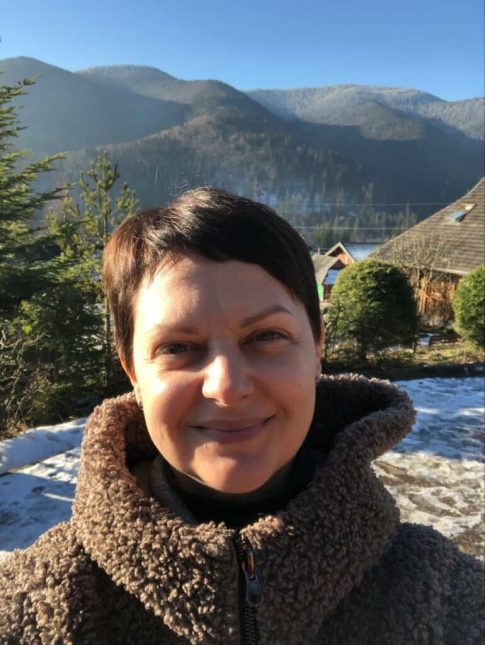
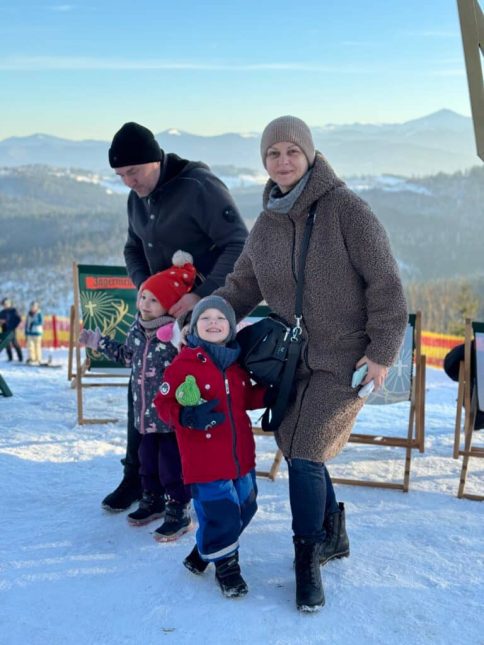
At the beginning of the full-scale invasion, Iryna found herself in the shelled town of Irpin together with her husband and two-year-old twins. “It was the toughest decision in my life to try to escape, risking the life of my family, my children. People were shot dead trying to escape via the bridge the day before us. But I knew what would happen to me and my family if we stayed and were captured by the occupiers [because of the] kind of organisation I was working for.”
“I used to be an optimist in life. But because of what my family and I have gone through and are still experiencing due to the war, I can’t enjoy life 100%, I can’t relax fully.”
“We haven’t had a real vacation in these two years – human rights organisations work non-stop, there’s always work to do. The [organisation wellbeing] retreat supported me, because we got to spend some quality time with the family and colleagues in a safer area, and we managed to distract ourselves. There were no air alarms, the atmosphere was different, and we could take time to enjoy the sunshine, something that we are not used to anymore,” concluded Hudym.
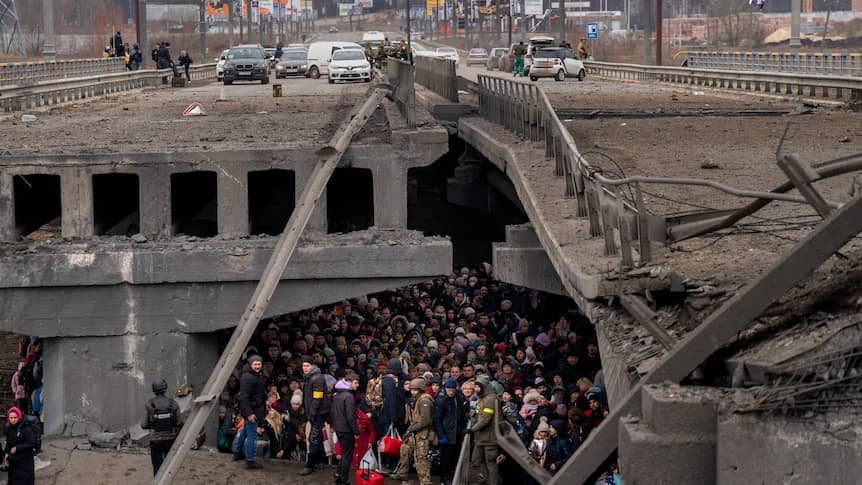
According to Elisabeth Ng Langdal, MHHRI has witnessed a concerning trend in the well-being of human rights defenders. “There’s a noticeable increase in requests from organisations to address the mental health impacts on defenders… We advocate for various forms of support, such as psychoeducation, individual and group psychological assistance, workshops, retreats and rehabilitation activities. The demand far exceeds the current capacity.”
With full-scale Russian invasion of Ukraine, Wika Solonitsyna has observed a dramatic increase in the need for mental health assistance for civil society as well as the general population: “Since February 2022, millions [of Ukrainians] have become displaced persons, many of whom were forced to leave Ukraine, many are now soldiers, thousands have died or been injured, towns and villages have been levelled to the ground. Behind all these events are citizens who require psychological, legal, humanitarian and other assistance, and Ukrainian activists, human rights defenders, and volunteers are on the front line to provide it. Such work is exhausting, especially during the war… That’s why it’s so important to support them and implement a culture of well-being in civil society organisations now.”
“CSOs play a leading role in advocating for the human rights and needs of the population affected by war and their well-being is directly related to the resilience of the country and its future sustainable development… We believe that support for civil society’s well-being is an investment in a free and democratic world,” concluded Solonitsyna.
The original story published by Human Rights House Foundation
Stories
-
Katarina Mathernova: If Ukraine had a human face and a human spirit, it would be 10-year-old Roman Oleksiv
-
A regional mission to drive social entrepreneurship: the story of Ksenia Kosukha
-
EU restores safe water supply for 100,000 Ukrainians affected by war
-
Promoting IT during the war: Lviv IT cluster and how EU4Digital helps
-
Frontline digitalisation: Kharkiv IT Cluster collaborations
-
How EU4Youth is driving opportunity and success among young Ukrainians